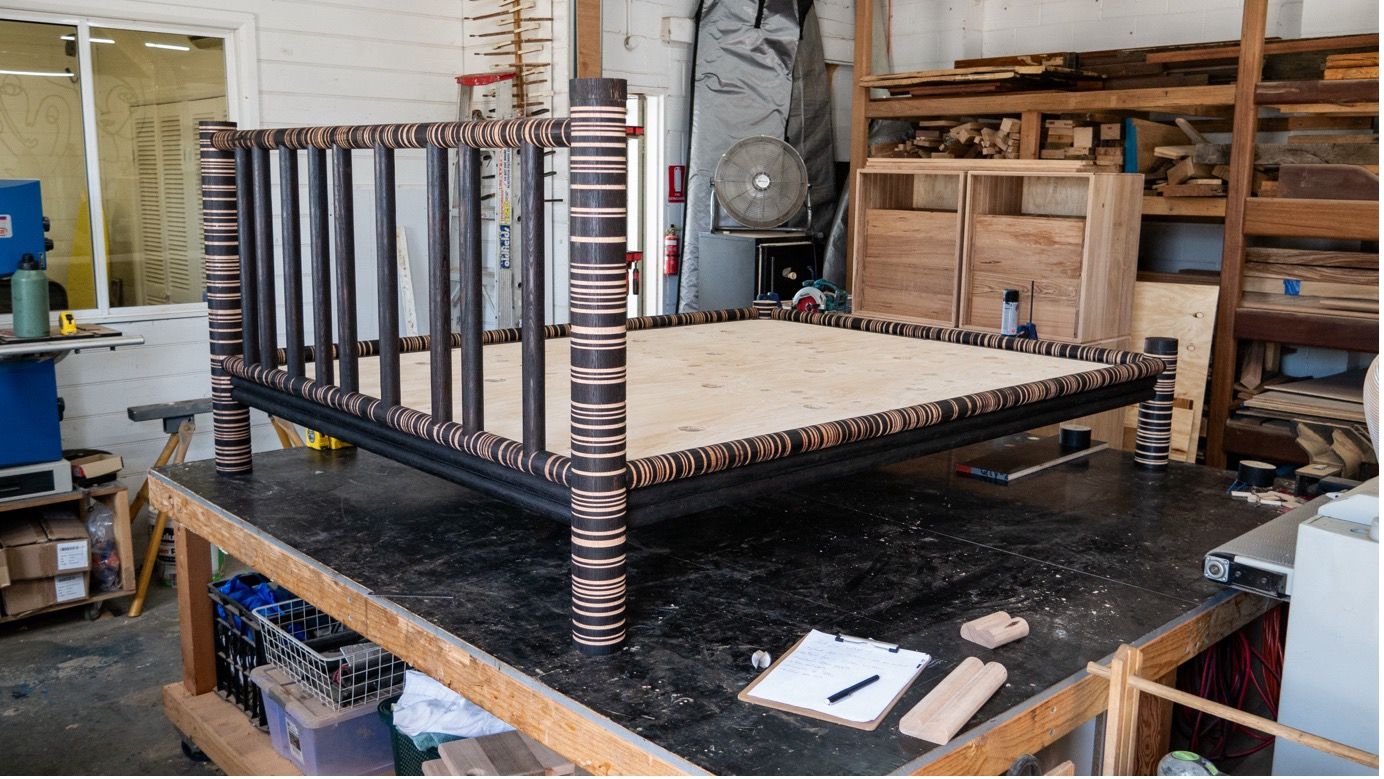)
Marlo Lyda
Marlo Lyda is an Australian-born designer-maker and Powerhouse design resident currently based in Sydney. With a deep-rooted commitment to celebrating the inherent beauty of makers and materials, Lyda's practice embodies a harmonious blend of creativity, resourcefulness and purpose. Coaxing delicate yet functional objects from rarely considered resources, Lyda’s work provokes a reassessment of the intrinsic value embedded in overlooked ‘waste’ materials. Graduating cum laude from Design Academy Eindhoven in 2021, Lyda draws from her education in the Netherlands to bring together design thinking with a hands-on approach to creation and collaboration. Her work has been exhibited at Dutch Design Week, as well as throughout Australia.
Turning (Camphor)

In many East Asian countries, Camphor Laurel intertwines with tales of myth and medicine, its timber transformed into objects of beauty. Yet, along the eastern coast of Australia it is considered an invasive weed species: synonymous with the devastation of native landscapes, its timber is often overlooked, poisoned or burnt where it stands. However, beneath its foliage lies a shaded opportunity — a resource capable of supporting native rehabilitation and sustainable forestry through mindful harvest.
Turning (Camphor) gives shape to a narrative of transformation, revealing Camphor's concealed charm as a sustainable timber source for fine furniture with an enduring positive impact. Using Camphor Laurel timber that has been removed from urban settings as well as ‘infested’ sites in the Northern Rivers region of New South Wales, the Turning (Camphor) collection is comprised of bed frames, side tables, lamps and candle holders. Despite Camphor's buttery softness and dense grain, its variable colouration has posed a formidable obstacle in mainstream markets. Turning (Camphor)rejects uniformity, celebrating the imperfections of Camphor as integral to its character, and in doing so shifts the dialogue around goals of homogeneity and standardisation.
'Turning' symbolises a decisive point of change, a theme reflected in the craft of woodturning itself, which serves as both metaphor and primary production technique in the creation of Turning (Camphor). Through this process, an anomalous striped patination emerges, echoing the complexities of Camphor's journey. Just as controversy surrounds the default management strategy for weed species - burn and remove - Turning employs charring as a means of embellishment, rather than destruction, to challenge preconceived notions and inspire a reevaluation of Camphor's role in the landscape.
Accompanying the furniture collection is a video narrative, offering insight into the intricate world of Camphor in the Northern Rivers region. As Camphor's unchecked growth poses ecological challenges, there is a growing consensus among environmentalists and ecologists for a radical reassessment of its value. Turning (Camphor) advocates for this shift, recognising Camphor Laurel timber as a potential asset rather than a liability, paving the way for furniture that promotes sustainable management of invasive species within native environments.
Turning (Camphor) is an outcome of the NSW Design (Early-Career) Fellowship at Powerhouse Ultimo, made possible through a partnership between Create NSW and Powerhouse.
Bedding styled in collaboration with Cultiver.
